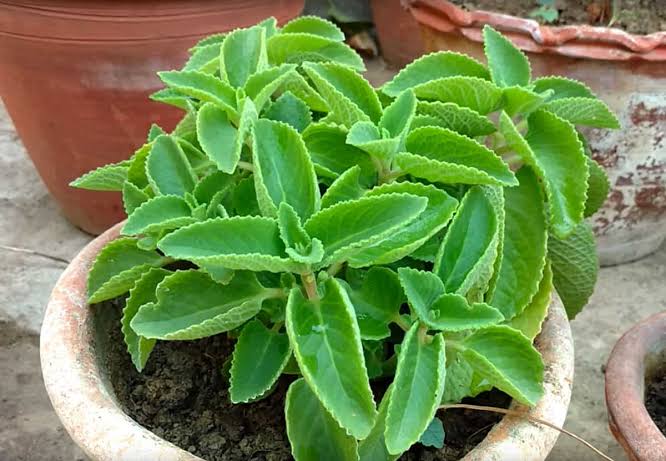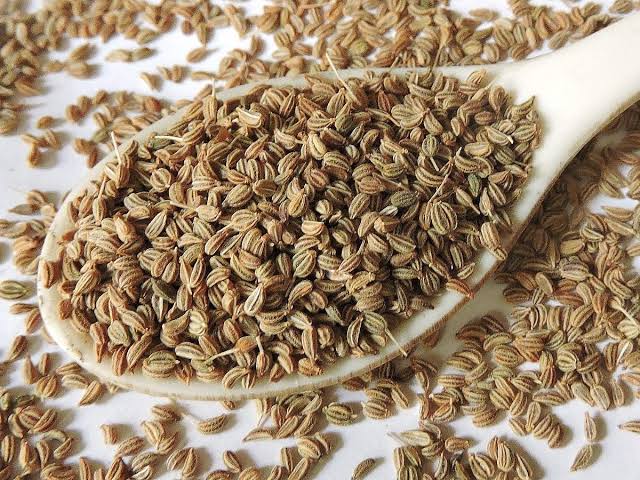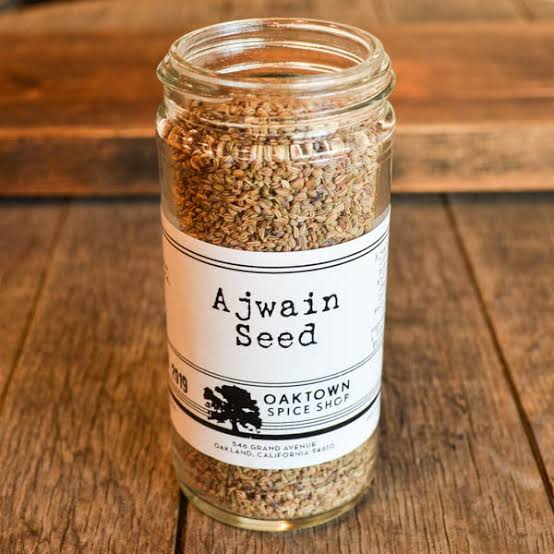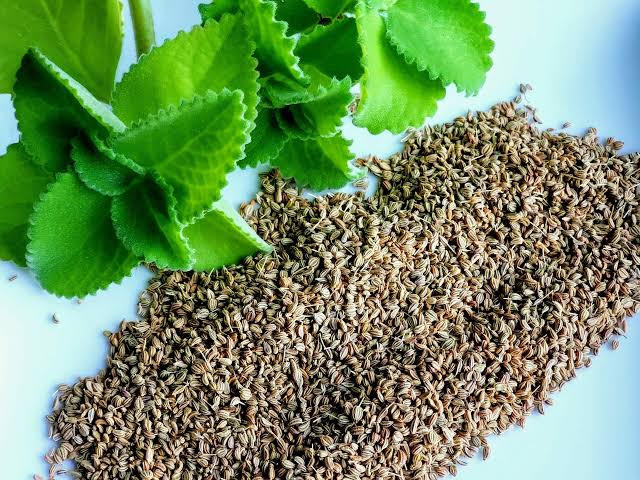Ajwain seeds, often known as carom seeds, are small but mighty gems in the world of spices. These seeds come from the fruits of the Ajwain plant (Trachyspermum ammi) and have been used for centuries in Indian and Middle Eastern cuisines and traditional medicine. Ajwain seeds are packed with flavor and health benefits, making them a valuable addition to any kitchen.
In appearance, Ajwain seeds are tiny and oval, resembling cumin seeds but with a unique taste and aroma. They have a pungent, slightly bitter, and peppery flavor, which is quite intense when compared to their small size. This distinctive flavor is what makes Ajwain seeds a popular spice in various dishes.
One of the most notable uses of Ajwain seeds is in culinary preparations. They are often used in tempering, which involves frying the seeds in oil or ghee to release their aromatic compounds. This process enhances the flavor of the seeds and adds a delightful aroma to the dish. Ajwain seeds are commonly used in bread, lentil dishes, pickles, and snacks. They also pair well with vegetables, particularly potatoes and cauliflower, adding a zesty kick to the recipes.
Beyond their culinary uses, Ajwain seeds offer several health benefits. These tiny seeds are a rich source of essential oils, primarily thymol, which is known for its medicinal properties. Thymol gives Ajwain seeds their strong flavor and contributes to their therapeutic value.
One of the most well-known benefits of Ajwain seeds is their digestive aid. They are often used to relieve indigestion, bloating, and flatulence. Simply chewing a few Ajwain seeds after a meal can help soothe an upset stomach. The thymol in Ajwain seeds also acts as an antimicrobial agent, which can help prevent infections in the digestive tract.
Ajwain seeds are also believed to have anti-inflammatory properties. Some people use them as a natural remedy for arthritis and joint pain. The seeds are either crushed and applied topically or consumed to alleviate discomfort.
In traditional medicine, Ajwain seeds have been used to treat respiratory issues. The presence of thymol makes them effective in relieving coughs and congestion. A common remedy is to inhale the steam from boiling Ajwain seeds, which can provide relief from a stuffy nose and chest congestion.
Furthermore, Ajwain seeds are known for their potential to aid weight loss. They may help boost metabolism and reduce water retention, making them a popular ingredient in weight loss recipes and herbal teas.
It’s worth noting that while Ajwain seeds offer numerous health benefits, they should be consumed in moderation, as excessive intake can lead to adverse effects. Pregnant women and individuals with certain medical conditions should consult a healthcare professional before incorporating Ajwain seeds into their diet or wellness routine.
In addition, Ajwain seeds are small powerhouses of flavor and health benefits. Their distinctive taste and aroma enhance the culinary experience, while their medicinal properties offer relief from various health issues. Whether you’re spicing up your meals or seeking natural remedies, Ajwain seeds are a versatile and valuable addition to your kitchen and wellness toolkit. Enjoy the benefits of these tiny seeds, and also enjoy the flavors they bring to your dishes.
Read Also: All You Need To Know About Flowers Identification
How to Grow the Ajwain Seeds

Ajwain seeds, also known as carom seeds, are not only a popular spice in the kitchen but also a wonderful herb to cultivate in your garden. Growing Ajwain seeds is relatively simple, and you can enjoy their fresh and aromatic leaves, as well as harvest the seeds for culinary and medicinal use. Here’s a step-by-step guide on how to grow Ajwain seeds successfully.
1. Choose the Right Location: Ajwain plants thrive in a sunny location with well-draining soil. Ensure your chosen spot receives at least 6-8 hours of sunlight daily.
2. Prepare the Soil: Ajwain prefers slightly alkaline soil with good drainage. You can improve soil quality by adding organic compost or well-rotted manure to enhance fertility and drainage.
3. Select the Seeds: Purchase high-quality Ajwain seeds from a reputable source. Fresh seeds are more likely to germinate successfully.
4. Planting: Sow the Ajwain seeds directly into the prepared soil. Space the seeds about 1-2 inches apart and cover them lightly with soil, pressing down gently to ensure good seed-to-soil contact.
5. Watering: Keep the soil consistently moist but not waterlogged. Watering once or twice a week should suffice, depending on the local climate and rainfall.
6. Thinning: Once the Ajwain seedlings reach a few inches in height, thin them out to allow for proper spacing, leaving about 6-8 inches between each plant.
7. Pruning and Harvesting: As the Ajwain plants grow, you can start pruning the leaves for culinary use. The leaves have a strong flavor and are often used in Indian dishes. Ensure you leave enough leaves for the plant to continue growing.
You can start harvesting the seeds when the plant flowers and produces seed pods. Allow the pods to mature and turn brown before collecting the seeds.
8. Pests and Diseases: Ajwain plants are relatively pest-resistant, but you should still keep an eye out for common garden pests like aphids or caterpillars. Use organic pest control methods if needed. Proper spacing and well-drained soil can help prevent root rot and other soil-borne diseases.
9. Fertilization: Ajwain plants do not require heavy feeding. You can provide a balanced, slow-release fertilizer once or twice during the growing season to support healthy growth.
10. Winter Care: In colder climates, Ajwain is typically grown as an annual. However, in warmer regions, it can be grown year-round. If you’re in a cold climate, you can attempt to overwinter the plant indoors in a sunny location.
Growing Ajwain seeds can be a rewarding experience for gardeners and culinary enthusiasts alike. With the right care and attention, you can enjoy fresh Ajwain leaves and harvest seeds to add a delightful and aromatic touch to your culinary creations.
15 Health Benefits of Ajwain Seeds

Here are 15 health benefits of Ajwain seeds:
1. Digestive Aid: Ajwain seeds are known for their digestive properties, helping to alleviate indigestion, gas, and bloating.
2. Relieves Acidity: They can help reduce acidity and heartburn, promoting a healthier digestive system.
3. Anti-inflammatory: Ajwain seeds have anti-inflammatory properties that may provide relief from conditions like arthritis and joint pain.
4. Respiratory Health: Inhaling steam from Ajwain seeds can help relieve congestion, coughs, and respiratory issues.
5. Antibacterial: Thymol in Ajwain seeds acts as an antibacterial agent, potentially preventing infections in the digestive tract.
6. Weight Management: Some believe Ajwain seeds can aid in weight loss by boosting metabolism and reducing water retention.
7. Relieves Menstrual Discomfort: They may help alleviate menstrual cramps and discomfort when consumed with warm water.
8. Lowers Blood Pressure: Ajwain seeds contain nutrients that can contribute to maintaining healthy blood pressure levels.
9. Anti-flatulent: These seeds can reduce gas formation in the digestive system, reducing discomfort.
10. Aids in Diarrhea: Ajwain seeds can help manage diarrhea due to their anti-inflammatory and antimicrobial properties.
11. Oral Health: Chewing Ajwain seeds may improve oral health by preventing bad breath and gum issues.
12. Skin Benefits: Applying a paste of Ajwain seeds and water can help with skin problems like acne and itching.
13. Improves Appetite: They can stimulate appetite, making them beneficial for those with reduced hunger.
14. Enhances Immunity: The antioxidants in Ajwain seeds may boost the immune system and protect against diseases.
15. Reduces Stress: Ajwain seeds can have a calming effect, potentially reducing stress and anxiety.
While Ajwain seeds offer these potential health benefits, it is very essential to use them in moderation and consult a healthcare professional if you have specific health concerns or conditions.
Read Also: Dutch Iris Flowers (Iris x Hollandica): All You Need To Know About
Uses of Ajwain Seeds

Ajwain seeds, also known as carom seeds, have a wide range of culinary and medicinal uses. Here are some common uses of Ajwain seeds:
1. Flavoring Agent: Ajwain seeds are primarily used as a spice and flavoring agent in various dishes. They add a distinctive, slightly bitter, and peppery flavor to foods.
2. Tempering: Ajwain seeds are often used in the tempering process, where they are fried in hot oil or ghee before adding other ingredients to enhance the flavor of the dish. This is a common technique in Indian cooking.
3. Bread and Baked Goods: Ajwain seeds are a popular addition to bread, especially in Indian cuisine. They are sprinkled on top of bread or incorporated into the dough to give it a unique taste.
4. Lentil and Vegetable Dishes: These seeds are commonly used in lentil (dal) dishes and various vegetable curries to add flavor and aid in digestion.
5. Pickles: Ajwain seeds are used in pickling vegetables, giving the pickles a distinctive tangy and spicy flavor.
6. Snacks: They are used in snacks like pakoras (fritters) and samosas to enhance the taste and aid in digestion.
7. Teas and Infusions: Ajwain seeds are sometimes used to make herbal teas or infusions, which are believed to have digestive and soothing properties.
8. Mouth Freshener: Chewing a few Ajwain seeds can act as a natural mouth freshener, helping to combat bad breath.
9. Digestive Aid: Ajwain seeds are well-known for their digestive benefits and are often consumed after meals to relieve indigestion, gas, and bloating.
10. Medicinal Poultices: In traditional medicine, Ajwain seeds are used in poultices to treat skin conditions, joint pain, and muscle aches.
11. Respiratory Remedies: Inhaling the steam from boiling Ajwain seeds can help alleviate coughs, congestion, and respiratory issues.
12. Weight Loss: Some people incorporate Ajwain seeds into weight loss diets due to their potential to boost metabolism and reduce water retention.
13. Menstrual Relief: Ajwain seeds, when consumed with warm water, are believed to provide relief from menstrual cramps and discomfort.
14. Anti-flatulent: They can reduce gas formation in the digestive system, easing discomfort caused by flatulence.
15. Oral Care: Chewing Ajwain seeds may promote better oral health by preventing bad breath and gum problems.
These are just some of the many uses of Ajwain seeds. Their versatility in both culinary and medicinal applications makes them a valuable spice and ingredient in various cultures around the world.
Read Also: How To Educate Yourself On Climate Change

